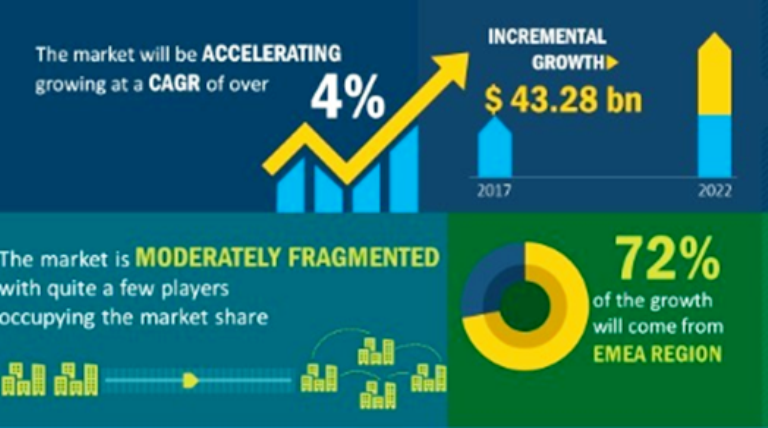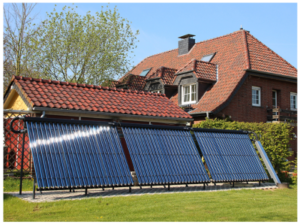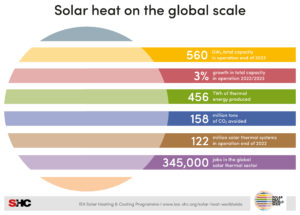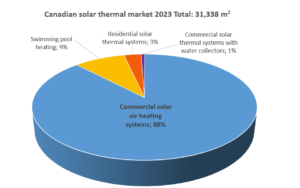

District heating in smart cities drives market
A new report published in December 2018 expects the global district heating market to grow by over USD 43.2 billion between 2018 and 2022, at an average rate of around 4 % a year, with the key driver being the implementation of district heating projects in smart cities. Consequently, heating capacity based on renewables would increase even faster by, on average, 7.4 % annually over five years. The 104-page document, titled Global District Heating Market 2018-2022, is UK-based Technavio’s first about the technology and is available to buy online. (Chart: Technavio)

The report said significant investment was being made to develop smart cities in multiple countries around the world, with its authors stressing that high-capacity heating boilers and chillers could be more cost-effective and generate lower emissions than individual heating systems, even if based on fossil fuels. Therefore, heat distribution networks would help smart cities generate energy savings, especially if they used solar, geothermal or biomass. Those technologies would then fuel an increase in turnover from renewable district heating and turn a market worth USD 21 billion in 2017 into one of USD 30.03 billion by 2022 (see the following table).
|
Value 2017 |
Value 2022 |
Compound annual |
|
|
Global district heating |
184 |
227 |
4 % |
|
Global renewable |
21 |
30 |
7.4 % |
|
Company |
Website |
Headquartered |
Turnover |
Market presence |
Services |
|
Fortum |
Finland |
EUR 4.5 million (2017) |
10 countries |
2.5 million customers across different brands, and over 150 power plants |
|
|
Wood Group |
UK |
USD 10 billion |
60 countries |
Engineering, project and technical services to industrial, energy, process and utility markets |
|
|
Ramboll Group |
Denmark |
EUR 1.4 billion |
300 offices in 35 countries |
Consulting engineers, designers and management consultants |
|
|
NRG Energy |
US |
USD 10.6 billion |
3 million customers |
Integrated power company |
|
|
Vattenfall |
Sweden |
EUR 12.9 billion |
14.2 million customers |
Energy utility |


